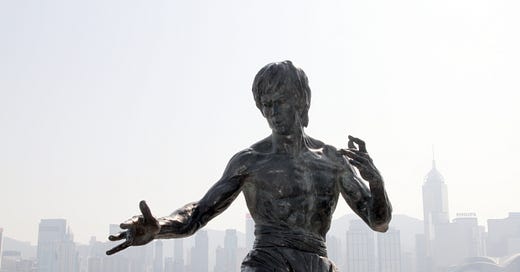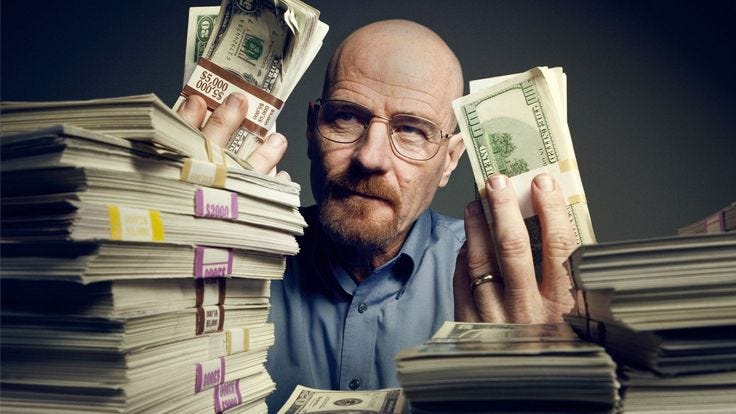Dear Reader,
I have a question for you. Who issues new currency in India? It is a no-brainer right?
RBI is responsible for printing and issuing new INRs. Similarly, in the US, the Federal Reserve prints and issues USDs.
Basically, for any country, the central bank is responsible for printing and issuing the official currency. But there is one exception - Hong Kong.
See Hong Kong has a central Bank, the Hong Kong Monetary Authority or HKMA. But did you know that the Hong Kong Dollar or HKD is issued by three private banks and not the central bank? You heard me right. HSBC, Standard Chartered, and Bank of China are responsible for issuing new currency in Hong Kong.
Doesn’t that sound risky? It is as good as leaving the monetary policy decisions to private banks.
Well, there is some history to it.
For the longest time, Hong Kong was a British colony. At that time, the British government was not involved in printing currency for Hong Kong. Instead, it allowed private banks to print and issue notes under specific regulations.
Over time, banking systems became more structured, and only two private banks, HSBC and Standard Chartered were allowed to print the HKD.
Discussions of Hong Kong’s independence had been going on in the 1980s and 1990s. That is when a third bank, the Bank of China (Hong Kong), was authorized to issue the HKD. A bank from Mainland China issuing HKD was seen as China gaining increasing influence over Hong Kong.
But how were these three private banks issuing currency? Were there any rules or regulations? Who was monitoring them?
First of all, they were and still are being monitored by the Hong Kong Monetary Authority (HKMA). HKMA regulates and oversees all the currency matters in Hong Kong.
Since before independence, Hong Kong had a Currency Board Arrangement. This means that Hong Kong’s currency, the HKD, was pegged to the US Dollar at a fixed exchange rate of 7.8 HKD for every 1 USD.
When a country pegs its currency to a foreign currency, it must hold commensurate reserves of that foreign currency. Let us break it down.
If Hong Kong has 1 US dollar in its forex reserves, it can issue 7.8 HKD in Hong Kong. If it has 100 US dollars in its forex reserves, it can issue 780 HKDs.
The private banks cannot go on printing HKD on their whims. They must deposit fresh US dollars with HKMA to print more Hong Kong Dollars.
But wait. All of this started when Hong Kong was a British colony. It was convenient for them to contract private banks to do money printing.
So, why does the practice still continue? Could give rise to an illegal currency exchange market? Find out in our episode.
Does currency peg hide bigger economic problems?
But, first things first. What on earth is currency pegging right?
Currency pegging (also called a fixed exchange rate) is when a country ties the value of its currency to another currency, usually the US Dollar (USD) or Euro.
If India decides: “$1 = ₹75, no matter what” that means whether the global market changes or not, the Indian government will maintain this fixed rate.
It does peg by actively buying/selling its own currency in the forex market to keep that rate steady.
On the surface, currency pegging might seem like a smart move, right? A country fixes the value of its currency to another, like the US Dollar, providing stability in exchange rates and making trade smoother.
But, NO! The hidden pitfall is that…
Not all currency pegs come from a place of strength. Sometimes, countries peg their currency to hide underlying economic weaknesses. Instead of letting the currency float and reflect true market conditions, they artificially control the value to make the economy seem stable.
But they’re just using financial engineering to look competitive, not because they’ve truly improved their products or expanded their market. So yeah, currency pegs can help stabilize things in the short run but they don’t fix fundamental problems.
But when they’re done to cover up deeper issues like a struggling economy or low reserves, they’re just a financial illusion. And does illusions solve real problems? Not really!
In fact, some countries even dip into their foreign reserves to maintain the peg, which adds more risk. It’s like borrowing money to make your business look good, it works for a while, but it’s not sustainable.
So, is Hong Kong truly strong, or is it just trying to appear stronger than it actually is?
What’s the price of regret?
Recently I was talking to a friend and she sounded like she had lost everything in life. Here’s a story of a reluctant trader…
She was a young trader who had spent months learning charts, studying strategies, and refining her craft. She wasn’t just trading money but was trading her confidence, her effort, and her sense of self-worth.
One day, after days of careful analysis, she spotted a setup that seemed perfect. She had done everything by the book, set risk limits, and calculated her entry and exit. She clicked ‘Buy’ with confidence.
But, the trade went south. Slowly, then all at once. She exited with a loss, staring at the red number on her screen. It wasn't just the money that stung; it was the regret.
“How could I be so wrong after all that effort?” she thought. She wasn’t just doubting the trade; she was doubting herself.
The next day, she hesitated to trade. She saw another good setup but didn’t act. The fear of being wrong again and feeling that sharp sting of regret was too much for her. A week passed, and she found herself either overthinking or making random, impulsive trades. Anything to avoid the pain of feeling like a failure again.
Until one evening, she realised that regret was inevitable in trading, not because she was bad at it, but because every decision came with risk. She had been trying so hard to avoid that emotion, she forgot the one thing she could control, which was - how she responded to it.
She wrote on a sticky note and stuck it to her monitor… “I’m not my trades. I’m my process.” and during this time she found something far more valuable than profits… She found freedom.
How? Check out our article on Regret: A powerful emotion you must face for more on the psychology while trading.
Why does a company’s stock fall… even after great results?
It records profits? Massive revenue jump? Everyone’s buying their product.
And yet… the stock price drops. Strange, right?
But, here’s the truth – Stock prices move on expectations, not just results. If investors expected even better numbers, or if the company gives a weak future outlook, the stock can tank. Also, “buy the rumour, sell the news” traders often ride the hype before results, then cash out after.
Lesson: A great company doesn’t always mean a great stock right now.
Markets move on emotions and future bets. Zoom out. Don’t get played by short-term noise.
This newsletter has been put together by Apurva Gururaj and Vineet Rajani. If you have any feedback for us or something you’d like for us to cover in the upcoming newsletters, do let us know. Mail us at varsity@zerodha.com










